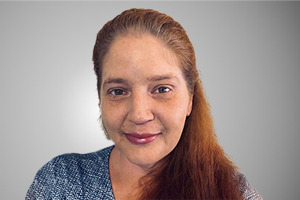
The healthcare workforce—physicians, nurses, and allied health professionals—has experienced cyclical shortages in the U.S. over many decades. Short-staffed facilities increase the workload of existing employees, leading to burnout and turnover. More importantly, low staffing levels compromise patients’ access to care and the quality of care they receive. Health workforce shortages increase existing differences in access to care and healthcare quality in rural and other areas. Localities, states, nonprofits, and the federal government operate numerous programs designed to bolster the healthcare workforce, but challenges remain.
The nation continues to experience issues with the distribution of the nursing workforce. Some communities offer less desirable employment opportunities for nurses, so some areas may still face workforce shortages even when the nation’s overall nurse supply is adequate. The Health Resources and Services Administration (HRSA) operates programs designed to improve the distribution of the healthcare workforce and increase nurse supply.
What Westat Is Doing
Westat is undertaking a comprehensive evaluation of HRSA’s Nurse Corps Loan Repayment Program and Scholarship Program, explains Jennifer Nooney, PhD, who is leading this evaluation. These programs offer loan repayment or scholarships for qualified nursing education expenses in return for a 2- to 3-year service commitment in certain communities or accredited schools of nursing. Westat is assessing whether the program expanded access to care in these communities and how long participating nurses stayed in these communities (or schools of nursing) after their service obligations were complete. Westat’s evaluation also assesses the impact of the expanded funding on the number of participants and access to care for patients. This work will culminate in an overall assessment of the program’s return on investment and recommendations for improvement.
Westat offers content expertise to help the healthcare industry meet health workforce challenges through rigorous research on topics such as supply and demand, the workforce education pipeline, the changing nature of work for healthcare professionals, and burnout and turnover. We also support robust program evaluations providing insights that can be used to improve interventions and boost the health workforce of tomorrow.
-
Perspective
Workforce Development Drives Solutions to Rural Healthcare ShortagesDecember 2025
Rural communities face disproportionate shortages of healthcare professionals, resulting in diminished access to care, longer wait times, fewer available services, and, ultimately, poorer health outcomes.…
-
Expert Interview
Responsible Synthetic Data: Unlocking Insights While Safeguarding PrivacyDecember 2025
From electronic health records (EHRs) to federal statistics, synthetic data are rapidly transforming how organizations share and analyze information, offering new ways to unlock insights…
-
Expert Interview
Moving AHEAD by Overcoming Potential Challenges to Healthcare TransformationNovember 2025
Healthcare access and costs in the U.S. continue to move in opposite directions—access is declining while costs keep rising. Americans need innovative solutions that tackle…
